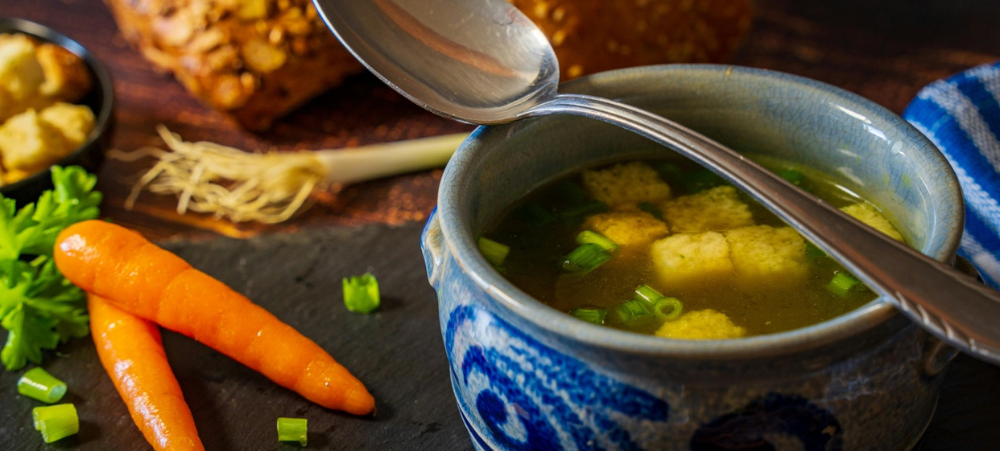Making sure that children get the right nutrition daily to support their healthy growth, development, and active lifestyles can be a concern for parents. This is amplified when our children participate seriously in sports, which increases the intensity and frequency of athletic demands on their bodies. Whether your child is just starting out in school sports or is showing promise as a future star, understanding sports nutrition is crucial to their performance, recovery, and overall health.
The basics of sports nutrition for active kids

Registered Dietitian, Rosey Lombard says, “A balanced diet is foundational to sports nutrition. However, when it comes to children who are playing sports regularly, there are several important overlays that include focused nutrition that supports performance during training and competition, as well as post-sports recovery and long-term health.”
A well-rounded diet for active children includes:
- Carbohydrates – the primary energy source for the brain and muscles during sports. Carbohydrates could be a source of dietary fibre, and are essential for gut health. Foods like bread, rice, potatoes, fruit and vegetables provide the energy needed to prepare for and power through high-energy activities.
- Proteins – the building blocks necessary for muscle development, growth and repair. A varied diet that includes milk, yoghurt, cheese, chicken, fish, eggs and legumes. This typically meets a child’s daily protein needs without the need for additional supplements.
- Fats – vital for smooth functioning of body cells and providing concentrated energy. Healthy fats from sources like avocado, peanut butter, olive oil, and nuts can help boost the energy (kJ) content of meals without adding too much volume.
- Vitamins and minerals – richly found in colourful fruits and vegetables to support all systems in the body. While vitamins help support the immune system and promote overall health, minerals such as potassium and magnesium are essential for muscle function.
The role of dairy in sports nutrition and recovery
“Dairy products play a significant role in the diet of young athletes, says Maretha Vermaak Registered Dietitian at Rediscover Dairy, “They provide high-quality protein, which is crucial for improving performance and aiding recovery after exercise. Research shows that as little as 500 ml of milk or flavoured milk after high-intensity training has all the right ingredients to help replace, repair and grow muscle tissue that broke down during exercise. Having a recovery drink that is nutrient-rich such as milk within an hour after a workout helps your body to maintain energy levels and limits tissue breakdown, making it possible to train just as hard the next day. In addition to protein, dairy provides carbohydrates for energy; potassium, sodium, and magnesium to replace electrolytes lost through sweating, and fluid to prevent dehydration. Dairy is particularly high in calcium, a mineral that is essential to build and maintain strong bones and support muscle function.”
Examples of ideal post-exercise dairy-based snacks include:
- Milk or flavoured milk
- Yoghurt or drinking yoghurt
- Fruit smoothies made with yoghurt and milk
- Cereal with milk or yoghurt
- Cheese sandwiches
- Baked potatoes with cottage cheese
Tailoring nutrition to your child’s needs

Every child is different, and their nutritional needs vary depending on factors such as age, intensity of activity, and personal preferences. Parents should focus on providing sufficient kilojoules to provide energy for daily functions, growth, sports performance, and recovery. Rosey advises, “One way to ensure that your child receives enough energy is by adding healthy fats to meals and snacks. Examples of this would be to add peanut butter to a smoothie or avocado to a cheese sandwich or a handful of nuts to their lunchbox. Fats contain more than double the energy per gram compared to carbohydrates or proteins, making them a dense source of calories.”
Pre-training fuel and hydration – Before training, it’s crucial to fuel your child with a carbohydrate-based snack. This could be a quick smoothie, yoghurt with fruit, cereal with milk, or peanut butter and jam toast. Hydration is equally important—encourage your child to drink water or milk throughout the day to maintain optimal hydration levels.
Recovery after training – After training, the goal is to replenish the energy expended and support muscle recovery. Within the first hour post exercise, ensure that your child is getting a snack that contains both carbohydrates and some protein. A good example of this would be a flavoured milk, yoghurt with fruit, or a cheese and honey sandwich. If your child doesn’t feel like eating, a smoothie or milkshake can be a good alternative to kickstart the recovery process.
Rosey concludes, “For parents, sports nutrition for their kids need not be complicated, especially if you already have a strong foundation of daily balanced meals. Then it is just a matter of being aware of sufficiently meeting energy needs before sports and focusing on protein-rich snacks for recovery after sports. There’s a wide range of choice of how parents can meet the nutritional needs of their budding athletes, and luckily many dairy products are amongst kids’ favourite foods.”
For more information on the benefits of dairy and sports nutrition for children, visit https://www.rediscoverdairy.co.za/sport-nutrition/
For dairy ideas and recipes join the Rediscover Dairy Facebook page: www.facebook.com/RediscoverDAIRY
- Why dairy for all-day focus and energy - May 28, 2025
- The power of dairy nutrition for active teenagers - September 19, 2024
- Why dairy has a significant place in sustainable diets - June 7, 2024





